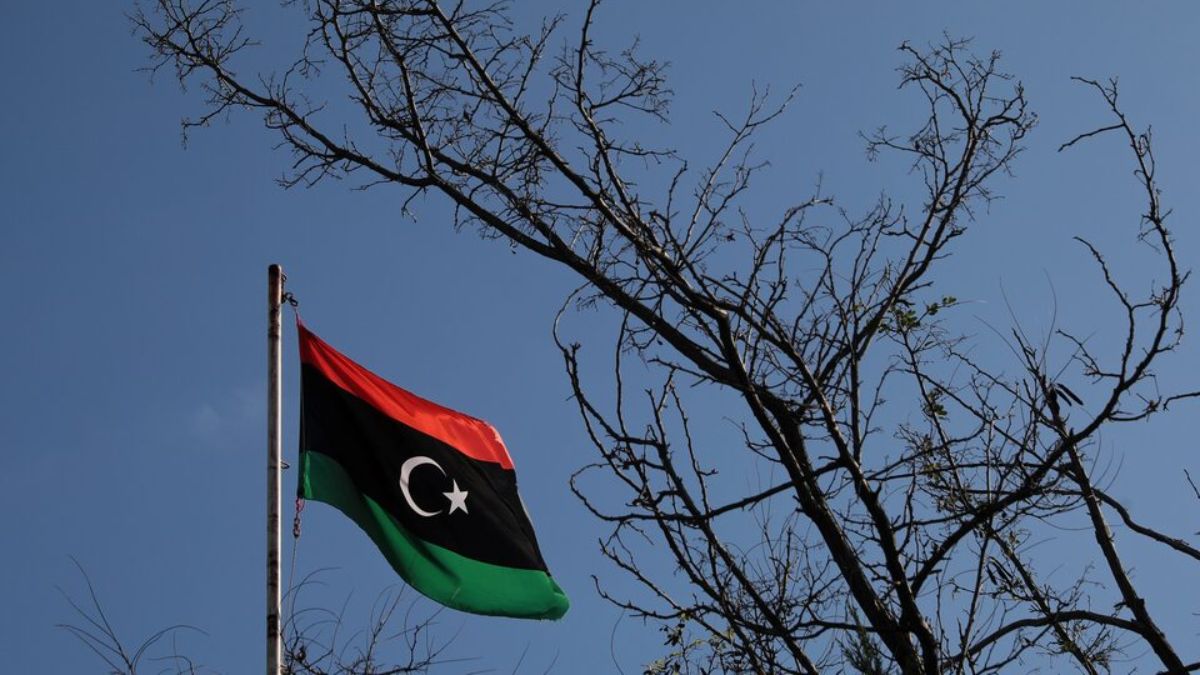Libyan armed groups and authorities have reached an agreement to secure critical infrastructure in the capital city of Tripoli, the country’s Interior Minister Imad Trabelsi announced on Friday (August 23).
This move comes amid growing concerns over escalating tensions and recent clashes that have reignited fears of renewed civil war in the North African nation.
Oil-rich Libya has been split between a UN-supported government in the capital, Tripoli, led by Prime Minister Abdulhamid Dbeibah, and rival authorities based in the east, backed by military strongman Khalifa Haftar. Each side has been backed by different armed groups and foreign governments.
Security accord in Tripoli
The agreement, reached in coordination with the Ministry of Defence, involves securing airports, land borders, and government institutions in the capital. “In coordination with the Ministry of Defence, we have brought together all the security services of Tripoli and managed to reach an agreement to secure the airports and land borders, as well as the headquarters of government (institutions) in the capital,” Trabelsi said.
He added that armed groups and security services expressed their immediate willingness to implement the accord.
The swift action to secure government buildings, including Libya’s central bank, may be a key step in preventing further destabilisation in the country, which has struggled to recover from years of conflict following the 2011 Nato-backed uprising that ousted longtime dictator Muammar Gaddafi.
Military mobilisation and rising tensions
The security agreement follows a series of alarming developments across Libya. On July 23, forces aligned with the Government of National Unity (GNU), led by PM Dbeibah, moved westward, prompting a mobilisation of the Libyan National Army (LNA), commanded by eastern military strongman Haftar.
Impact Shorts
More ShortsThe LNA’s subsequent unilateral movement toward southwestern Libya on August 9 heightened tensions, sparking Western forces and groups to mobilise and assert their readiness to respond to any attack. While the LNA later clarified its purpose in moving these forces was to secure the southwestern border, its move raised concerns with Libya’s neighbour Algeria.
Simultaneously, on August 9, violent clashes erupted in Tajoura, east of Tripoli, between two armed groups, resulting in nine fatalities and significant property damage. Local mediation efforts defused the situation. Later, local media reported that the clashes had been motivated by an assassination attempt on one of the militia leaders.
In a statement, the United Nations Support Mission in Libya (UNSMIL) said it was monitoring “with concern the recent mobilisation of forces in various parts of Libya.”
Longtime Libya watchers were more direct, suggesting that, after around four years of relative calm in the country, civil war might be about to break out once again, according to DW.
Political turmoil and leadership changes
Libya’s political landscape has been equally turbulent.
In early August, Mohammed Takala was elected as the new head of the Tripoli-based High State Council (HSC), unseating Khaled al-Mishri, who had held the position since 2018.
The leadership change in this key political institution has introduced further uncertainty into an already divided political scene.
Over the last decade, the rival governments have attempted wresting control from the other. This month, too, something similar happened.
On August 13, some members of the House of Representatives (HoR), meeting in Benghazi, voted to end the mandate of the GNU and the Presidency Council, transferring the role of Supreme Commander of the Armed Forces to the Speaker of the HoR. They also endorsed the HoR-designated government in the east as the only legitimate executive authority, a move rejected by Western leaders.
The following day, armed groups mobilised in Tripoli’s Souk Al Jumma district, responding to reports of attempts to seize control of the Central Bank. The situation was diffused by early morning on August 15, but tensions remain high.
Struggle for control of the central bank
Libya’s central bank, the sole internationally recognised depository for the country’s oil revenues, has become a focal point in the ongoing power struggle. Seddik al-Kabir, the bank’s governor since 2012, has come under fire from figures close to PM Dbeibah over his management of oil resources and the state budget.
On August 18, the abduction of Musaab Muslamm, head of the bank’s information technology department, by an “unidentified” party further escalated the crisis.
The kidnapping, believed to be an attempt to force al-Kabir’s resignation, led to the temporary suspension of the bank’s operations. Muslamm was released the following day, allowing the bank to resume its functions.
The same day, on August 18, a controversial move, the Tripoli-based Presidential Council removed al-Kabir from his position. However, the eastern-based HoR and Haftar’s camp rejected the dismissal, insisting that al-Kabir remains the legitimate governor. They warned that the conflict could escalate, potentially leading to further economic destabilisation, including the freezing of Libya’s assets and a collapse of the Libyan dinar, according to arious local media reports.
As of now, al-Kabir has not officially stepped down, and the situation remains tense.
Libya’s recent security agreement in Tripoli offers a temporary reprieve from the escalating violence, but the underlying political and economic tensions continue to threaten the country’s stability. With armed groups on high alert and the struggle for control over the central bank unresolved, anxiety over a civil war remains high.
With inputs from agencies


)

)
)
)
)
)
)
)
)



